Happy Now?
Information
- Date
- 29th November 2023
- Society
- Guildburys Theatre Company
- Venue
- The Electric Theatre, Guildford
- Type of Production
- Play
- Director
- Gilly Fick
- Written By
- Lucinda Coxon
This was a thoroughly enjoyable, lighthearted but poignant, story of two couples caught up in the mundane business of working and raising a family, coping with the pressures of relationships and supporting each other and their friends. The script was quietly humorous from the start. The first thing to say is that it was brilliantly cast. They were ‘ordinary’ people, just like you and me. It was all very believable. As I’m on the cusp of the “Silent Generation” (1925-1945) and the “Baby Boomers” (1945-1965), “Generation X” has always been something of a mystery to me but this was thoroughly credible and a window into what this (my children’s) generation now has to face.
The excellent programme was full of useful information. I was fascinated to learn that various generations have been given names – Greatest from 1901 to 1924, Silent, Baby Boomers, X, Y (Milennials), Z and the latest, Alpha, covering 2013 to the present day. Whatever next! I liked the layout and the photos of the cast on the front cover captured them perfectly. Well done to designer Cheryl Malam.
There was a terrific section in the programme on the creation of the set. Eight different scenes were incorporated on the stage, including a backdrop of chaotic children’s paraphernalia. Scenery shifts were minimal, the slick changes carried out mostly by the cast, moving from one house or venue to another. The layout was very clever, each one merging into the next, with genuine period furniture. Ingenuous. Props came and went seamlessly, with little fuss. The ringing phone and switching on and off the table lamp went without a hitch. Good use was made of spotlights to highlight particular areas, leaving the others in darkness. There was no need for thunder and lightning in this production but the off-stage voices of children misbehaving or reciting nursery rhymes was cleverly addressed. Given the period of the play, costumes were down to earth and everyday. Much use of dressing gowns in various forms.
The play opens at a conference on Euthanasia where Michael (Neil James) and Kitty (Samantha Remnant) meet in the bar. Michael is the epitome of one’s idea of a sales rep – a self-opinionated philanderer, cheerful, unashamed and boastful of his sexual encounters at the various conferences he attends. James conveyed this to perfection and I will long carry with me the image of him stripping down to his underpants in the bedroom, displaying his magnificent torso and giving an impromptu impression of The Full Monty. Hilarious. Kitty, representing a cancer charity, by contrast came across as business-like, plain, conventional and harassed. She manages to repel Michael’s overtures but in the end is tempted into his bedroom where he turns out, surprisingly, to be something of a gentleman. Remnant conveyed all these traits throughout the play, never able to really live her life the way she wants. Her husband Johnny (Jonathan Constant), a dedicated but rather dull teacher, tries hard to placate her, looking after the children (who we never see but whose voices we hear) and helping run the house. Constant came across as likeable and generous and gave a strong performance. The other couple in the mix, their best friends – Miles (Olly Clifford) and Bea (Claire Howes) – were more volatile and their characters were well portrayed by Clifford and Howes, the latter appearing to have quite a forceful temperament whereas Clifford appeared unable to cope and resorting to the bottle. The amount of alcohol consumed by everyone was phenomenal but again, very much a sign of the times. The two other players - Carl (Tim Brown), their gay friend, and June (Kathryn Attwood), Kitty’s mother – gave strong performances. Brown was sympathetic and friendly and eventually rather sad, breaking up with his partner. Attwood was everyone’s idea of an infuriating mother (and mother-in-law), uncompromising, controlling and bitter. Two perfect little cameo roles, both extremely well interpreted
Much use was made of clichés applicable to the period. The poster in Kitty’s and Johnny’s kitchen had them all – Patience is a Virtue; Happiness is not a Destination, it’s a Way of Life; Good things come to those who wait, etc.
As the play progresses, the brittle relationships between the two couples, both with their partners and their friends, become more apparent until at the end they all sit isolated with their thoughts, uncommunicative and unsmiling. A sad reflection on a way of life which is only too common nowadays.
Director Gilly Fick did a marvellous job interpreting the nuances and atmosphere of the period and she was blessed with a dream cast. I couldn’t find fault with what was a thoroughly enjoyable and amusing production.
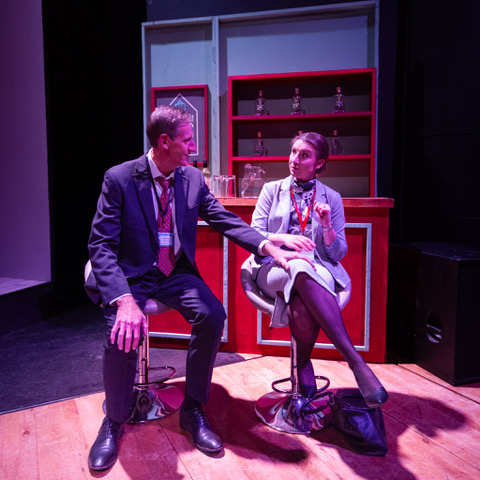 |
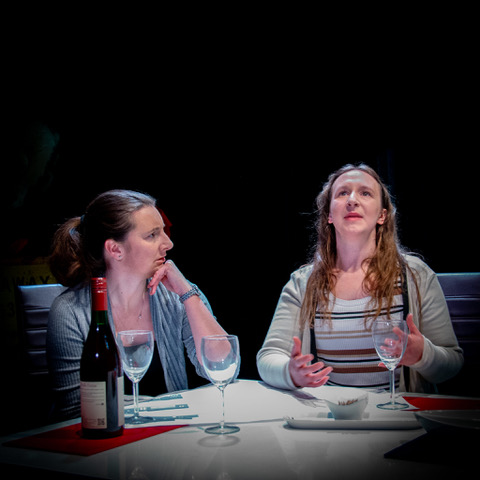 |
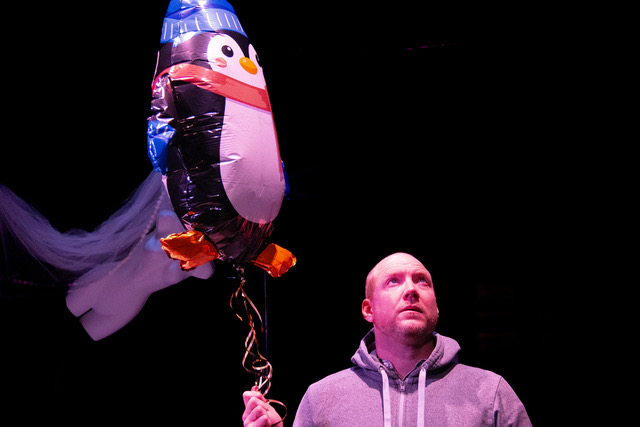 |
 |
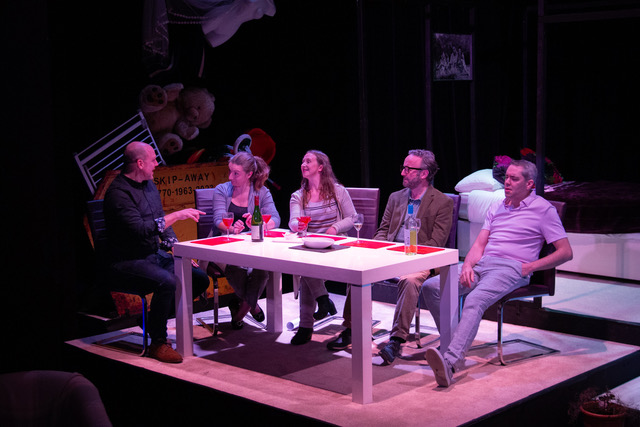 |
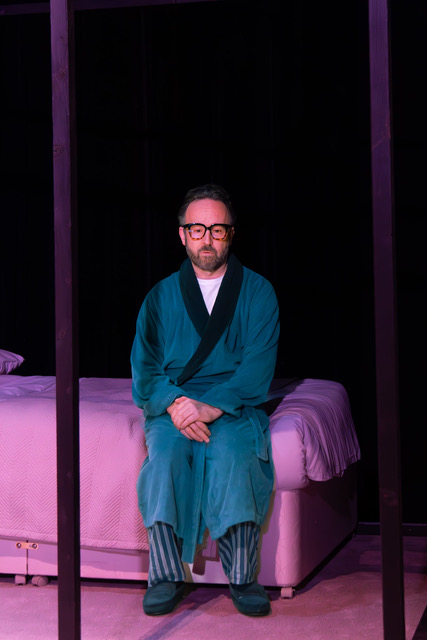 |
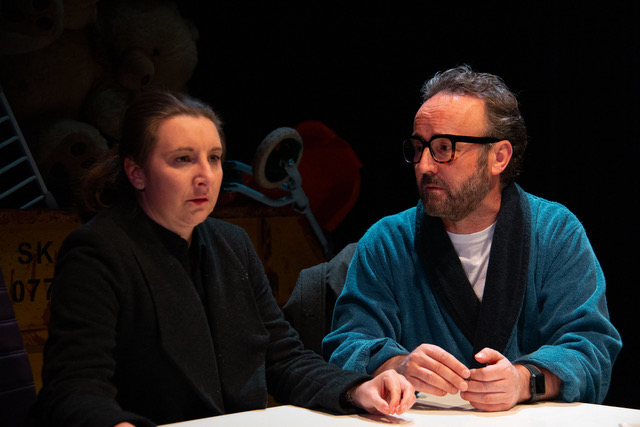 |
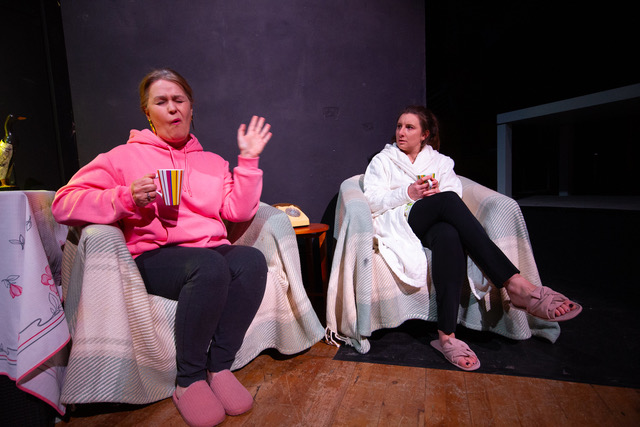 |
 |
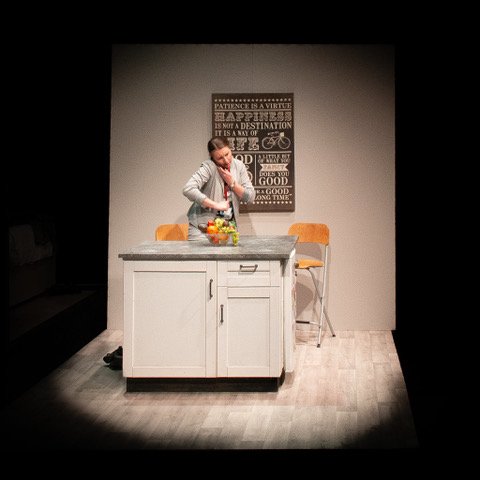 |
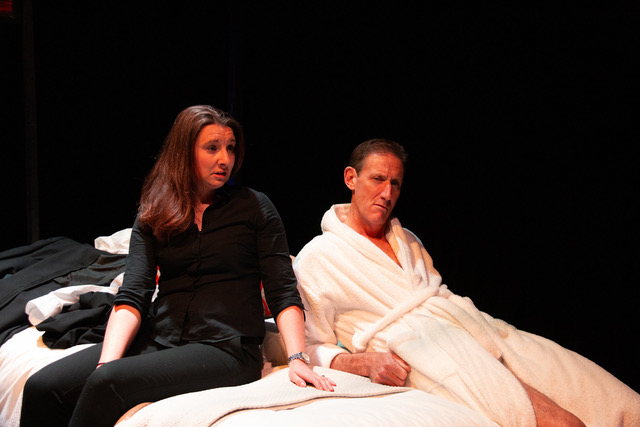 |
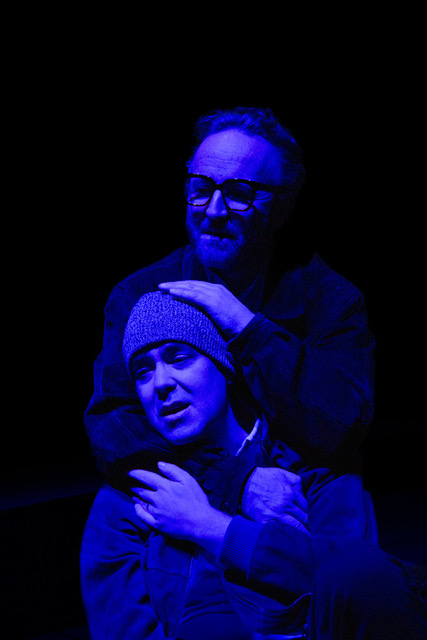 |
© NODA CIO. All rights reserved.

 Show Reports
Happy Now?
Show Reports
Happy Now?